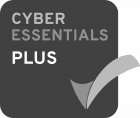10 December 2019
We came together with Barclays in 2016 to launch the FirstPort Digital Eagles Initiative, and since then it has allowed us to create a ‘digital community’ across FirstPort, allowing our colleagues to help customers improve their digital skills and become more digitally confident.
As we spend ever more time using the internet, so too are fraudsters, eager to exploit our new online lives and discover new ways to scam us out of our money; Barclays are on a mission to help the nation protect themselves from fraudsters.
How to spot a fraudster
Most fraudsters want you to do something. It could be clicking a link to take you to a convincing, but fake, bank website, or opening an attachment containing malware to capture your login details the next time you visit your bank online.
Two major scamming tactics are designed to tap into our natural human instincts and create a mild state of panic, which engages us to act quickly to restore order:
- Creating urgency to act in some way
Look out for situations where you’re being asked to make a quick decision, such as emails telling you that a fraudster has compromised your online account and you need to log in to set a new password. Or, calls from someone claiming to be from tech support, who needs to access your computer remotely. - Appealing to our natural curiosity
Our normal human social interactions are also a potential weakness. There are some very creative examples of fraud designed to play on natural curiosity.
For example, emails that have been spoofed to look like it has mistakenly come from someone other than the sender. There may be a file attachment revealing the will of a long-lost or unknown relative, or photos of a celebrity’s secret wedding; do not open these attachments, they may contain a virus that can capture personal details from your computer.
Fraud is easily preventable if you follow top tips such as:
- Stop and think
- Don’t open any attachments you didn’t expect to receive
- Try to resist fraudsters’ attempts to manipulate your emotional state
More tips on keeping yourself safe online:
- Watch out for the latest scams
Scams are becoming more sophisticated. Along with fraudulent emails and dodgy websites, cons now include frauds by text, online wish-list frauds, e-cards containing malicious software and social media scams. - Stay on top of your bank accounts
Check your account regularly, looking for unfamiliar transactions. Contact the bank if you have any concerns. Never give out your PINsentry codes, Mobile PINsentry codes, passcodes or Online Banking passwords and other full passwords to anyone. - Take your time and look carefully
If you’re not sure you’re safe or something feels unusual, remember to take five and think about the situation carefully. Urgency is a fraudster’s friend. If you feel rushed and under pressure, you’re less likely to take the time required to defend yourself by looking closely at suspicious websites or links. It is always worth slowing down and taking the time to look properly – don’t click links or open attachments if you’re not sure what the source is. - Beware of special offers
If you see an offer in your inbox or a text message that looks too good to be true, it probably is. Be particularly careful during busy times such as last minute Christmas shopping and New Year sales, when fraudsters are likely to be out in full force. - Make sure the website you’re buying from is legitimate
Do basic due diligence to make sure an online seller is genuine before entering payment details. Look out for things like fuzzy imagery or any unusual requests for personal or bank details. - If you think you’ve been a victim of a scam, call the police and your bank straight away
A genuine bank or the police would never ask you to transfer money to a ‘safe account’ – ignore anyone who asks you to do this, whether it’s by phone, email or any other method. Your bank will never visit your home address and ask you to hand over your cards, PINs and personal details.
If you’d like to find out more, join one of the Tea and Teach sessions organised by Barclays. For more information on how you can stay safe, visit their website at www.barclays.co.uk/security



